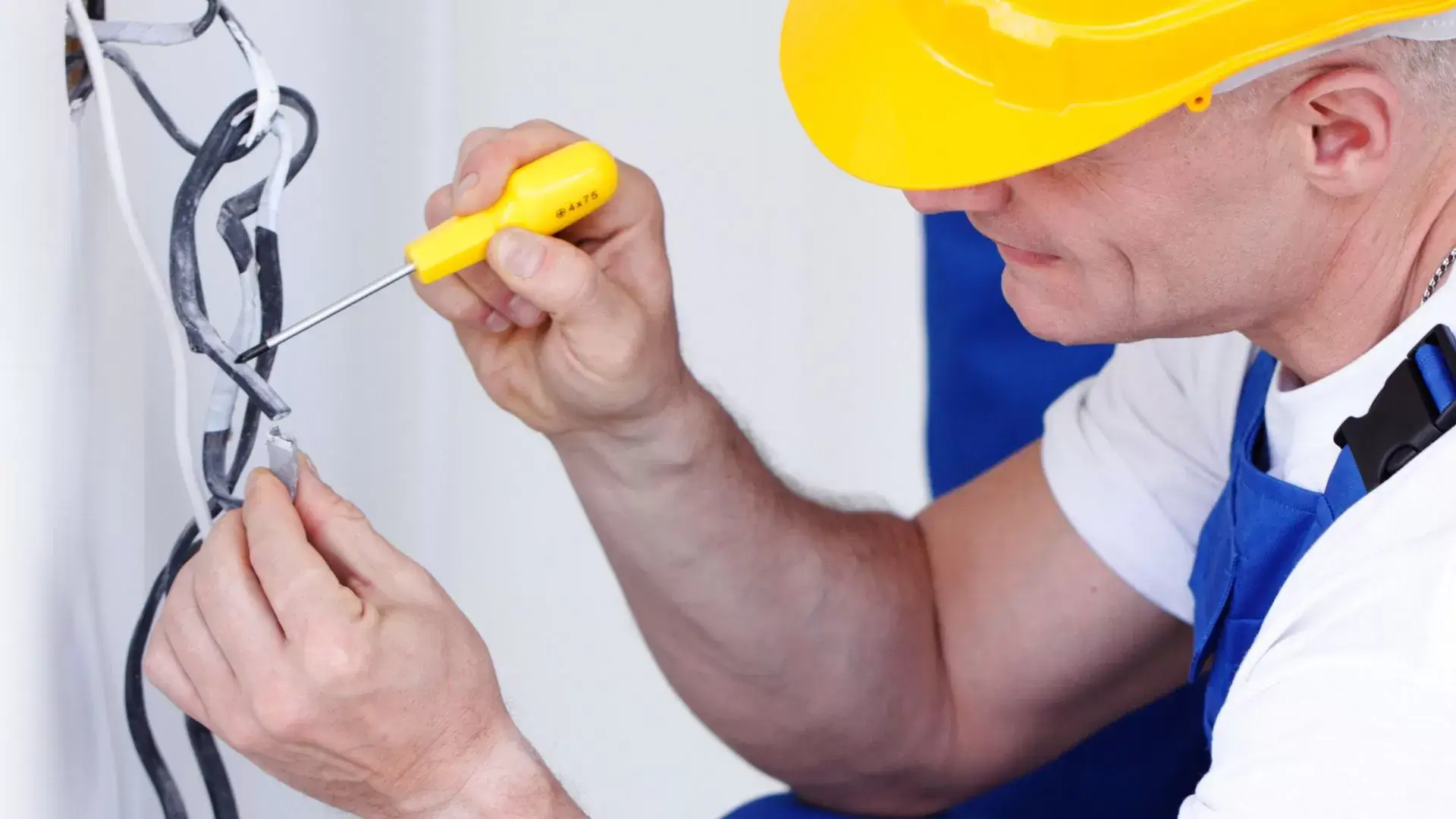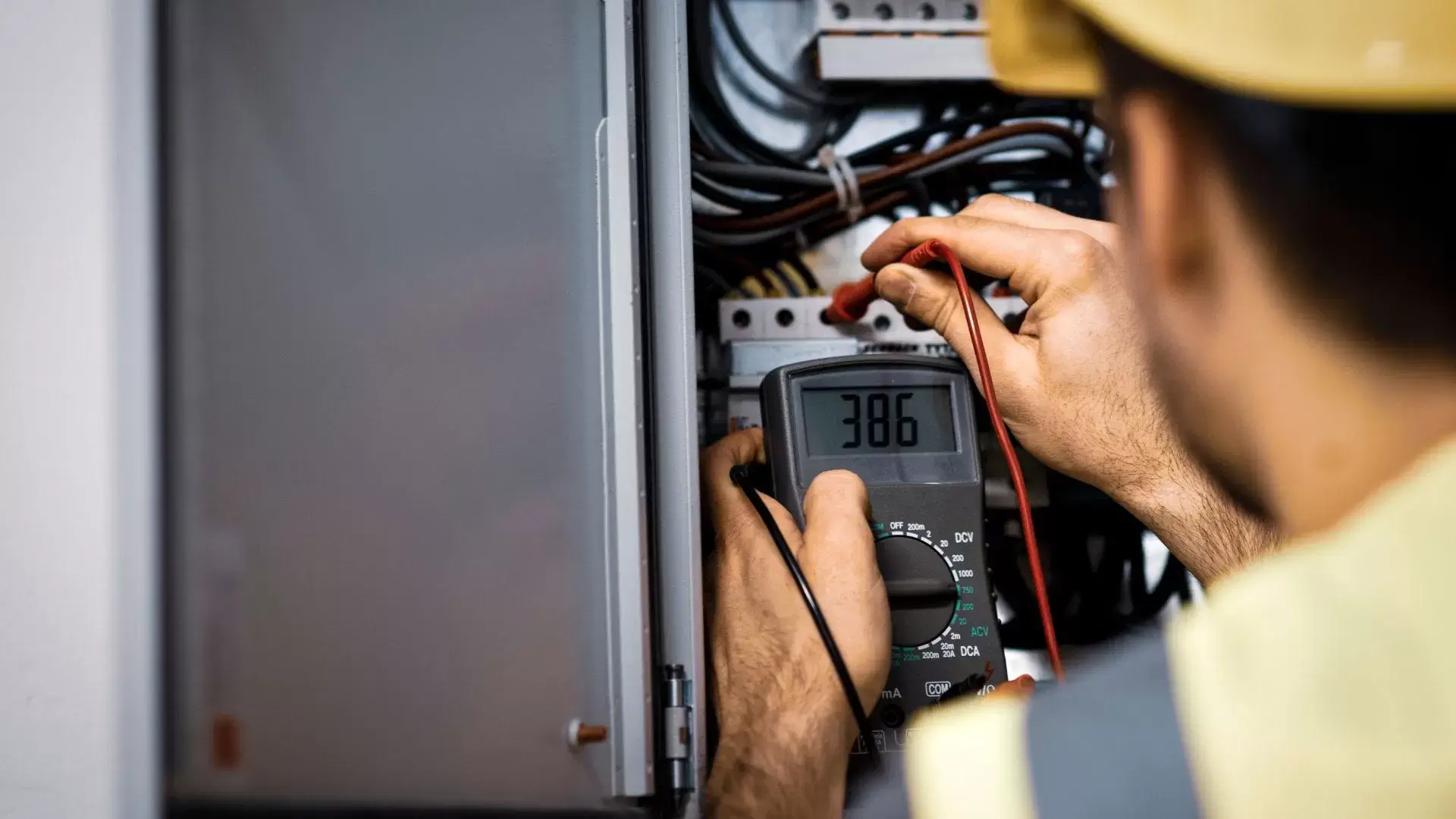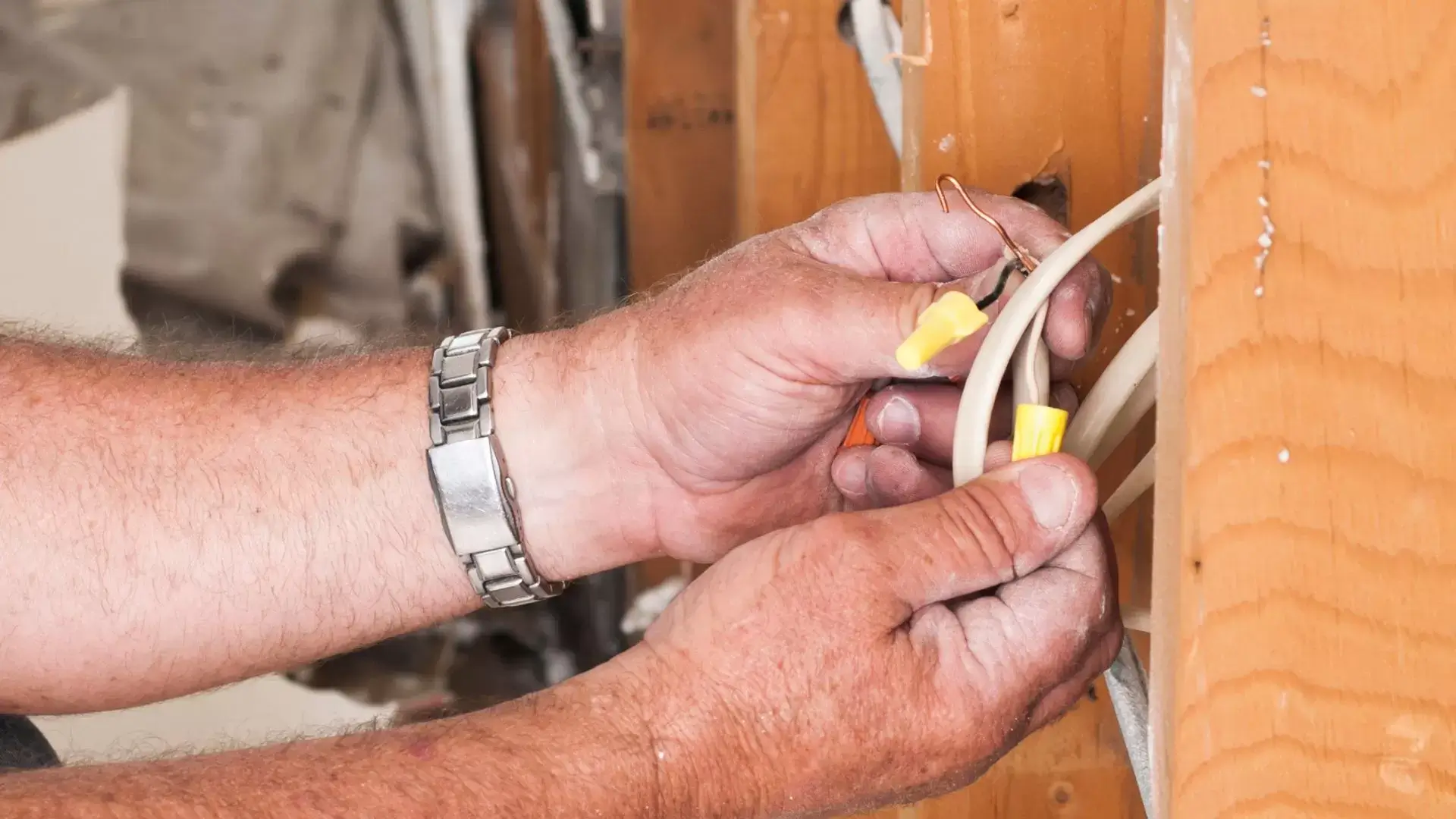Types of Electrical Wiring – Everything You Need to Know in Mississauga
When it comes to electrical wiring in Mississauga, it’s important to understand the various types available for safety and efficiency. Different wiring methods like exposed and concealed wiring have specific uses – exposed is common in industrial settings for maintenance ease, while concealed is preferred for safety and aesthetics in residential and commercial buildings. Cleat and capping wiring offer unique installation approaches especially common in older structures. Conduit wiring stands out for its protection and durability, shielding wires from hazards. Choosing the right wiring type is essential for meeting specific needs and ensuring long-term safety and functionality in electrical systems.
Key Takeaways
- Differentiate between aluminum, copper, and knob-and-tube wiring.
- Highlight the benefits and drawbacks of each type of wiring.
- Discuss the suitability of each wiring type for residential applications.
- Address the safety considerations associated with various wiring options.
- Provide insights on the most common types of electrical wiring used in Mississauga.
Electrical Wiring and Structured Cabling expert at iCAN Electricians in Mississauga
We, at iCAN Electricians in Mississauga, specialize in providing high-quality electrical wiring and structured cabling services.
Our expertise encompasses installation, replacement, and repair services for various electrical wiring systems.
With a focus on precision and safety, our team delivers efficient and reliable solutions for residential, commercial, and industrial properties.
Electrical Wiring and Cabling Installation and Replacement Services
Specializing in expert electrical wiring and structured cabling installation and replacement services in Mississauga, iCAN Electricians guarantee precision and safety in meeting residential and commercial needs. Our team of electricians is proficient in handling various types of electrical wiring systems, including aluminum wiring upgrades and knob-and-tube wiring replacements.
We prioritize quality workmanship and adhere to safety standards to provide thorough installations and replacements. Whether it’s for residential or commercial spaces, iCAN Electricians offer all-encompassing services to address all wiring and cabling requirements. Trust us to deliver long-lasting solutions and reliable services tailored to your specific needs.
Contact iCAN Electricians for exceptional electrical wiring and cabling services in Mississauga.

Electrical Wiring and Cabling Repair Services
When addressing electrical wiring and cabling repair services in Mississauga, the expertise of iCAN Electricians guarantees efficient diagnosis and resolution of a diverse range of electrical issues. Our team of electricians specializes in repairing electrical wiring in both residential and commercial properties.
We excel in troubleshooting faulty wiring, fixing damaged cables, and ensuring safe electrical connections. At iCAN Electricians, safety and quality workmanship are our top priorities. We’re dedicated to providing timely and reliable solutions for all your electrical wiring and cabling repair needs.
Trust iCAN Electricians for expert services that prioritize the safety and functionality of your electrical systems.

Exposed Vs Concealed Electrical Wiring
Exposed and concealed electrical wiring systems serve important purposes in various settings, each offering unique advantages and considerations for installation and maintenance. Exposed electrical wiring is commonly utilized in industrial settings for easy access and maintenance, facilitating quick fault detection and repair.
In contrast, concealed electrical wiring, prevalent in residential and commercial buildings, hides wires behind finished surfaces for a neater appearance and enhanced safety. Exposed wiring in high-traffic areas may be safeguarded using conduits or raceways to prevent damage. On the other hand, concealed wiring necessitates meticulous planning and installation to adhere to building codes while maintaining aesthetics.
Both wiring methods must comply with electrical standards and regulations to prevent hazards and ensure functionality. Understanding the distinctions between exposed and concealed electrical wiring is important for selecting the appropriate system based on the specific requirements of the installation environment.
Understanding Cleat and Capping Wiring
Moving from the discussion on exposed and concealed electrical wiring systems, delving into the realm of Cleat and Capping Wiring unveils historical practices and construction techniques related to electrical installations.
Cleat wiring involves running insulated electrical conductors along walls or ceilings using wooden or plastic cleats for support. On the other hand, capping wiring utilizes wooden battens or metal channels to encase the insulated conductors, providing protection against potential damage. These methods were commonly employed in older buildings before the advent of modern wiring systems.
Both cleat and capping wiring necessitate meticulous installation to guarantee adequate support and protection for the electrical conductors. Understanding cleat and capping wiring not only sheds light on historical electrical wiring practices but also offers insights into traditional building construction techniques.
This knowledge underscores the importance of proper installation procedures to safeguard the longevity and safety of electrical systems within structures.

Benefits of Conduit Wiring Systems
Conduit wiring systems, known for their exceptional protection and durability, offer a secure solution for safeguarding electrical wires against various environmental and physical hazards. These systems consist of metal or plastic conduits that encase the wires, providing insulation and shielding from moisture, heat, and impact. The insulation properties of conduit wiring help prevent electrical shorts and reduce the risk of fires caused by exposed wires. Additionally, conduit wiring installations aid in complying with building codes and regulations, ensuring a safe and organized electrical setup within a structure.
One of the significant advantages of conduit wiring is its flexibility, allowing for future expansions or modifications to the electrical network without the need for extensive rewiring. This flexibility makes conduit systems a versatile and reliable choice for various wiring installations, especially in industrial settings, outdoor environments, and areas prone to high electrical interference. The durability of conduit wiring further enhances its appeal, making it a preferred option for ensuring long-term safety and functionality in electrical systems.
Types of Electrical Cables for Mississauga
In exploring the domain of electrical wiring in Mississauga, understanding the diverse types of electrical cables is essential for ensuring safe and compliant installations. Commonly used in Mississauga, Non-Metallic Sheathed Cable (NM) consists of insulated conductors and a ground wire in a plastic sheath, suitable for indoor applications.
Armored Cable (AC) is another prevalent option, featuring insulated wires protected by a flexible metal sheath, ideal for areas requiring mechanical safeguarding. For underground applications in Mississauga, the Underground Feeder Cable (UF) is the go-to choice, designed for direct burial with a durable outer jacket.
Each type of cable comes with specific installation requirements tailored to its designated use, ensuring safety and adherence to local codes. Proper selection and installation of NM, AC, and UF cables are vital steps in the wiring process to guarantee reliable and secure electrical systems in Mississauga.
Key Considerations for Wiring Selection
When contemplating the selection of wiring for electrical installations, it’s essential to thoroughly assess factors such as wire gauge, material, insulation type, and wire color coding to guarantee maximum safety and performance.
The wire gauge determines the wire’s current-carrying capacity, with larger gauges capable of handling higher currents. Additionally, the material choice between aluminum wiring and copper wiring plays an important role. While aluminum wiring is cost-effective, copper wiring offers better conductivity and longevity.
Evaluating the insulation type is equally important to prevent electrical leakage and ensure durability, especially in diverse environmental conditions. Furthermore, understanding wire color coding simplifies identification during installation, reducing errors and enhancing safety.
Consideration of the wiring layout and configuration is imperative to meet specific electrical needs and comply with building codes, ensuring a safe and efficient electrical system. By carefully considering these key factors, one can select the most suitable electrical wire for their project.
Contact our Expert Electrician in Mississauga, Ontario for any Electrical Wiring and Cabling Needs
For those in Mississauga, Ontario requiring expert assistance with their electrical wiring and cabling needs, our professional electricians are available to provide thorough services tailored to your requirements. Our expert electricians in Mississauga guarantees safety by adhering to local codes and regulations, offering upgrades to enhance the efficiency and reliability of your electrical system.
By contacting our electricians, you can have peace of mind that your wiring will be in compliance with Ontario’s standards, providing assurance for homeowners. Whether you need a complete wiring overhaul or specific cabling solutions, our experts are equipped to handle a wide range of electrical projects.
Trust our local electricians to assess your current wiring, recommend necessary upgrades, and make sure that all work is done in accordance with safety guidelines. Contact us today for all your electrical wiring needs in Mississauga, Ontario, and let our professionals take care of your electrical systems with precision and expertise.

Frequently Asked Questions
How Do I Know What Electrical Wire I Need?
We assess your needs by considering factors like ampacity, voltage, and environment. Gauge numbers indicate wire thickness and current capacity. Consulting with professionals helps determine the right wire type and size for your project, ensuring safety and efficiency.
What Electrical Work Can Be Done Without a License in Ontario?
In Ontario, we can do minor electrical work without a license, like changing a light switch. Adherence to the Ontario Electrical Safety Code is essential. Complex tasks such as wiring new circuits should be handled by licensed electricians to guarantee safety.
What Type of Wiring Is Used in Residential Homes?
We commonly use copper wiring in residential homes due to its conductivity and safety. It’s preferred for its heat resistance and ability to handle high loads efficiently. Aluminum wiring, while cost-effective, raises safety concerns.
What Are the Different Types of Electrical Wiring?
We’ll cover various types of electrical wiring methods like Cleat Wiring, Casing and Capping Wiring, Batten Wiring (CTS or TRS), Conduit Wiring (Surface or Concealed), and Lead Sheathed Wiring. Each method has unique applications and considerations.

